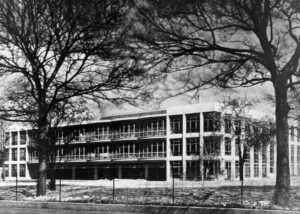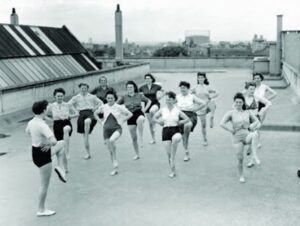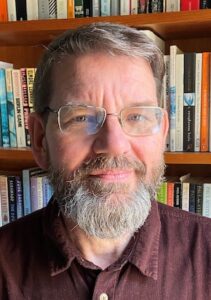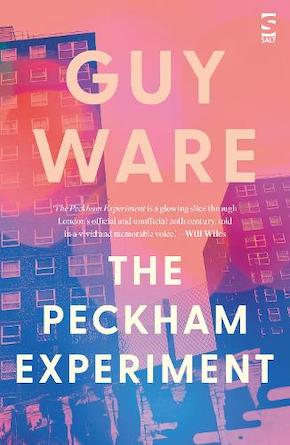Approaching The Peckham Experiment
by Guy WareFive and a half years after the appalling tragedy of Grenfell Tower, the public inquiry has finally completed more than 300 public hearings. Richard Millett KC, counsel to the inquiry, declared: “Each and every one of the deaths that occurred… was avoidable.” He mapped out the way the companies, authorities and individuals involved had all blamed each other for those deaths. The Government and the local council may have apologised, but their failings were immense – not only in allowing the block to be wrapped in cladding that burned like petrol, but in the way they reacted to the tragedy – and to the survivors – as it unfolded.
In June 2017, I had been working in and around London local government for thirty years. As we watched the catastrophic fire and the ham-fisted response, two things occurred to me. Firstly, I knew many of the people involved. Not the tenants; those responsible. And, if I did not know them personally, I knew people like them. I was one of them. In my career I have signed off countless privately-funded deals to build and refurbish homes, offices, schools and leisure centres. I knew the cost, but not the materials they were made of. It was not my job to know. This is not for a moment to suggest that local government officials are the real victims here – far from it. There can be no excuse for what happened at Grenfell. But there should be explanations. How can we have reached this point?
My second thought was that I was old enough to remember Ronan Point. In 1968, the partial collapse of a brand new system-built tower block in East London killed five people and – so legend has it – triggered a loss of faith in the 1960s dreams of ‘streets in the sky’. Reality, of course, was a little more complicated.
Ronan Point was rebuilt. Less than twenty years later, however, the entire estate was demolished in an early example of the countless ‘regeneration’ schemes undertaken ever since the 1980s.
Surely, I had the shape of my story? By now I was fairly clear I was dealing with a pair of twin brothers whose parallel careers would embody the great postwar flowering of collective socialist endeavour that built the welfare state and the NHS, soured through the 60s and the cash-strapped 70s, before being systematically dismantled by Margaret Thatcher and her successors – leading us step-by-step to the weary compromises and blinkered profit-seeking that destroyed Grenfell Tower.

The Pioneer Health Centre on St Mary’s Road, Peckham, designed by Sir Owen Williams. South London Gallery
Isn’t that the way it was?
Well, yes – and no.
The Peckham Experiment is my fourth novel. As a novelist, rather than a bureaucrat, my job is to complicate such apparent simplicity. I knew my story would end just before the Grenfell fire. But when – and where – should it start?
The postwar idealists did not emerge fully formed from nowhere in 1945. My narrator Charlie Jellicoe and his brother JJ had to be born into the deprivation, radicalism and emergent fascism of south London in the 1930s. They live close to where I live now, just around the corner from the Pioneer Health Centre, a palace of glass and steel and concrete built in 1935 as a ‘laboratory’ for The Peckham Experiment – a visionary, utopian, contradictory attempt to discover the conditions in which human health could flourish. Two doctors – George Scott Williamson and Innes Hope Pearse – called themselves Biologists and promoted an approach to health that went far beyond the absence of disease, including “physical, mental, social and even economic life.” Their Centre would provide a cafeteria, regular dances, music, a swimming pool, gymnasium and tennis court – along with birth control, ante-natal, post-natal and infant welfare and orthopaedic clinics.
The Centre becomes a prewar Eden for Charlie and JJ, as for hundreds of working class children in Peckham at the time. Where else could they go, without adult supervision, to swim and play for free?
It was not, however, free for their parents. The shilling-a-week subscription and thruppence a swim charges were designed not only to fund the centre, but to foster a sense of collective ownership. And to keep the riff-raff out.
The fledgling NHS was committed to free, universal healthcare: there could be no place for the mutual, utopian, sort-of anarchist Peckham Experiment.”
This exclusivity, together with a patrician regime – “a very strict anarchy” Williamson called it – and more than a whiff of positive eugenics, was controversial even at the time. Charlie and JJ’s father – a communist busy fighting Mosley’s Blackshirts and organising Peckham rent strikes – is not convinced. Neither is their older sister, who refuses to let them rejoin after the war.

Exercise class on the roof of the Pioneer Health Centre. South London Gallery
The Experiment would not last long in any case. The fledgling NHS was committed to free, universal healthcare: there could be no place for the mutual, utopian, sort-of anarchist Peckham Experiment.
The building became an adult education institute, eventually passing on to Southwark Council, where I found myself working in the 1990s. One of the council’s brightest ideas at the time was the supposedly innovative Peckham Pulse, with its integrated health and leisure facilities. To help make that happen, the council sold the Pioneer Centre for conversion into private flats, complete with private swimming pool and private gym…
And Charlie, whose idealism has all along proved more flexible (and his private life more complicated) than his brother’s, moves in. And there it was: the perfect framing for The Peckham Experiment. In June 2017, JJ has just died. Charlie, now 85, spends the night before the funeral trying to make sense of their lives, their rivalry, his guilt – and his suspicion that, for all his betrayals, it might still be better to have stayed on to fight, however imperfectly, with motives however mixed, than to have surrendered hope altogether.
A week later, that fragile consolation will be tested to destruction…
—
 Guy Ware is a critically acclaimed novelist and short story writer based in South London. The author of the novels The Fat of Fed Beasts (2015), Reconciliation (2017) and The Faculty of Indifference (2019), his short stories have appeared in numerous print and online journals, been collected in You Have 24 Hours to Love Us (Comma, 2012), and anthologised in the Best British Short Stories 2013 (Salt, 2013). He won the London Short Story Prize 2018, and has been listed for many other awards, including the Bridport, Edge Hill, Frank O’Connor, Galley Beggars, Fish and Bristol short story prizes. The Peckham Experiment is out now in paperback and eBook from Salt Publishing.
Guy Ware is a critically acclaimed novelist and short story writer based in South London. The author of the novels The Fat of Fed Beasts (2015), Reconciliation (2017) and The Faculty of Indifference (2019), his short stories have appeared in numerous print and online journals, been collected in You Have 24 Hours to Love Us (Comma, 2012), and anthologised in the Best British Short Stories 2013 (Salt, 2013). He won the London Short Story Prize 2018, and has been listed for many other awards, including the Bridport, Edge Hill, Frank O’Connor, Galley Beggars, Fish and Bristol short story prizes. The Peckham Experiment is out now in paperback and eBook from Salt Publishing.
Read more
@guyware
@saltpublishing


